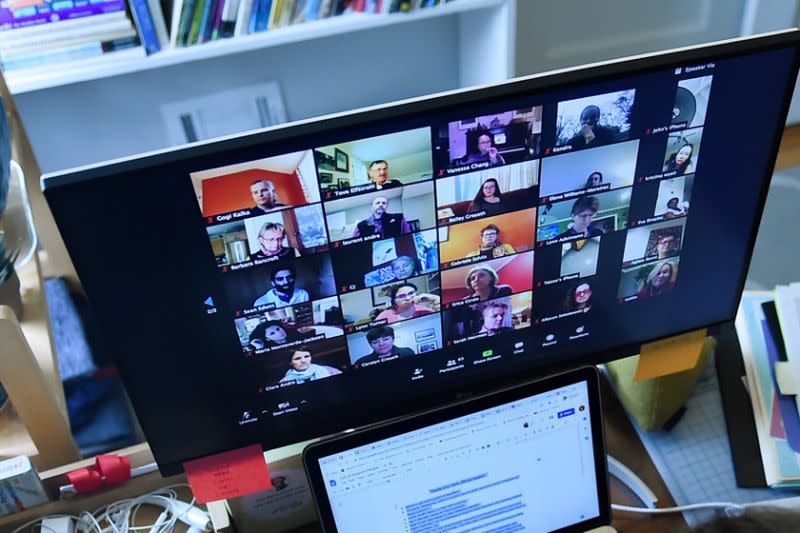Could virtual networking help people with social anxiety?

Walking into a room full of people you don’t know to try and build up your contacts book is never easy. Even for the most confident person, it can be hard to know how to approach someone, how to strike up a conversation and how to make a good impression.
For people who struggle with anxiety in social events, though, networking can seem impossible.
It’s tempting to skip networking events and conferences, but forming professional relationships can be really beneficial to career success. They allow us to share ideas, get access to job opportunities, get advice and support, gain different perspectives and build confidence too.
In 2014, researchers from the University of Toronto, Harvard University and Northwestern University studied 165 lawyers at a large North American law firm to find out whether networking benefitted their careers. The results found their success depended on their ability to network effectively both internally – to get themselves assigned to choice clients – and externally, in order to bring business into the firm.
Social anxiety is a common problem and it’s a good idea to see your GP if it is having a big impact on your life. But there are other ways you can make networking a little easier too, according to career experts - including doing it virtually.
According to the UK tech job board CWJobs, business networking is thriving under the current lockdown – with two fifths (40%) of UK office workers having attended a virtual networking event during isolation. The most popular platforms Brits are using to grow and expand their network of contacts include Zoom (38%), Skype (35%) and even WhatsApp (32%).
READ MORE: How COVID-19 will change the way we work in the long-run
“Virtual networking can benefit those who struggle with anxiety when networking. The research has shown that more than half (59%) of us find online networking a more relaxed environment to socialise in, over the traditional face-to-face format which can feel quite forced and daunting for some,” says Corinne Mills, managing director of Personal Career Management.
More than half (54%) of the tech industry said they prefered virtual networking to traditional face-to-face meetings, the research found, with two thirds (66%) saying they believed virtual networking benefited introverted employees the most.
“The use of video platforms can remove the social pressures like approaching and greeting new people or making small talk,” Mills says. “The logistical planning that goes into virtual networking events means that people are paired, and so it also removes the uncertainty of where to go and who to speak to. The data in the survey has reflected this and said that the video format has balanced the books for the more confident and for those that are more shy – or more anxious.”
There are, of course, some downsides to networking virtually. Technical issues like sound problems and frozen screens can be frustrating - and it can still be nerve wracking to know you are being watched if you are video conferencing. So how can you make it a little easier?
“Practice your introduction,” Mills advises. “One of the things that hasn’t changed for online networking is the need to introduce yourself clearly and confidently so that your audience is left with a positive impression of who you are, what you do and that you are pretty good and enthusiastic about doing it.”
It can also help to prepare yourself beforehand and know what you are looking for. Think about what you will say when people ask what you do and what you like about your job, for example.
It can be difficult to maintain eye contact if you struggle with anxiety, but it’s important to look engaged. “Position the camera at eye level, which is more flattering and gives the illusion of more direct eye contact rather than talking side-eye to people,” Mills says.
READ MORE: How to network when you have social anxiety
Remember that first impressions still count. “Make sure that there is nothing that people will see which could undercut that impression,” she adds. “If you don’t want to share too much of your domestic interior, then use a neutral bare wall as your background or try the video blurring function.
“Make sure you secure contact details or social media channels of the person you’re networking with, if they are willing to share them, so you can keep in touch in the future.”
Sometimes, even when you’ve prepared for a virtual networking event, panic can still take over. Rather than try to fight it, step away from your computer for a few minutes to get some fresh air and headspace. Deep breathing can help reduce feelings of anxiety.

 Yahoo Finance
Yahoo Finance 
